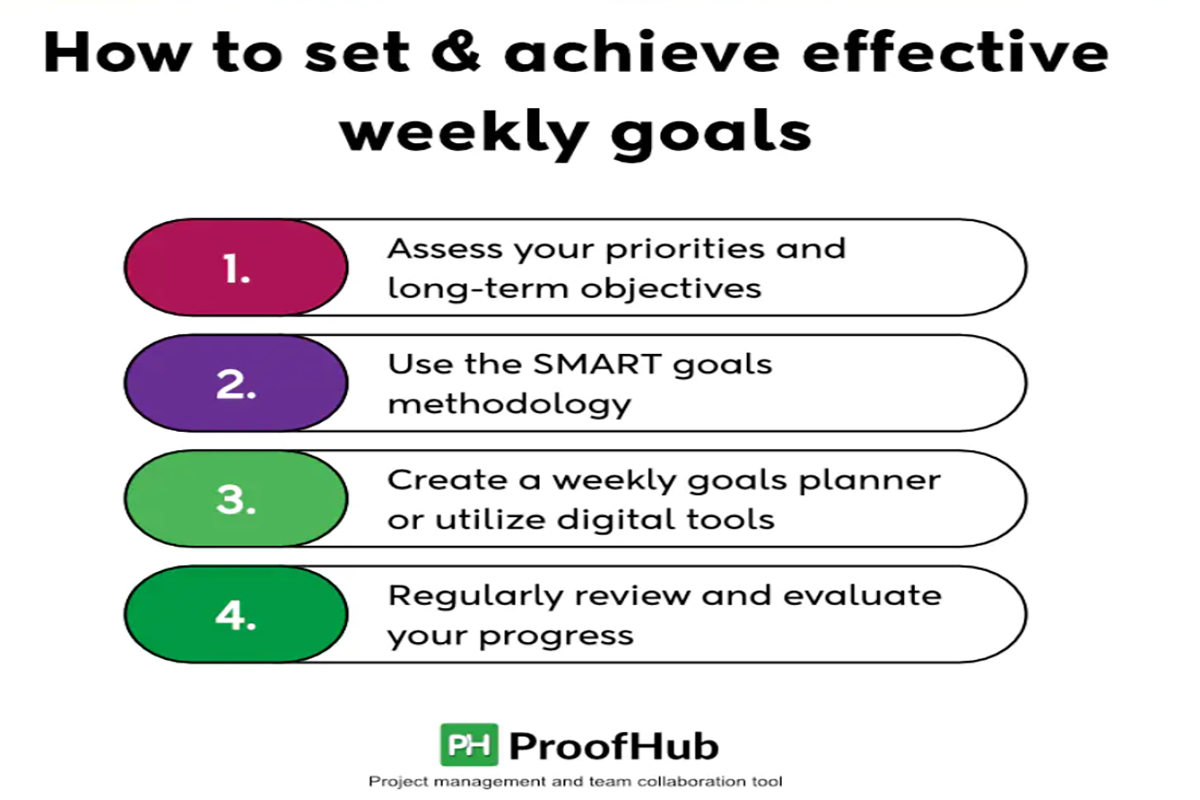1. Understand Your Why
-
Reflect on your motivations: Before setting any goals, think deeply about why you want to pursue your career. Understand your purpose—whether it’s financial freedom, personal fulfillment, or helping others. Knowing your “why” gives you a strong foundation.
2. Identify Your Long-Term Vision
-
Visualize your ideal career: Where do you see yourself in 5 or 10 years? This long-term vision will guide your goal-setting process and help you align your short-term goals with your bigger ambitions.
3. Break Down Your Vision Into Specific Goals
-
Set clear, specific goals: Don’t just say, “I want to succeed in my career.” Instead, break it down into specific objectives like, “I want to become a manager in my field” or “I want to increase my salary by 20% in 3 years.”
4. Set SMART Goals
-
Ensure your goals are SMART: Make sure your goals are Specific, Measurable, Achievable, Relevant, and Time-bound. This framework helps make your goals clear and achievable.

5. Create a Step-by-Step Action Plan
-
Plan your actions: Break down your goals into smaller, actionable steps. For instance, if your goal is to earn a promotion, your steps could include improving your skills, seeking mentorship, and networking within your company.
6. Prioritize Your Goals
-
Focus on what’s most important: Decide which goals will have the biggest impact on your career and focus your energy on them first. This helps avoid spreading yourself too thin.
7. Set Realistic Deadlines
-
Establish a timeline: Assign realistic deadlines for each goal. Having deadlines creates a sense of urgency and keeps you accountable.
8. Identify and Develop Key Skills
-
Skill development is crucial: Analyze the skills you need to achieve your career goals. Whether it’s technical skills or soft skills like leadership and communication, make sure you’re constantly learning and growing.
9. Stay Flexible
-
Adapt to changing circumstances: Sometimes life or work situations change unexpectedly. Be open to adjusting your goals or timelines while maintaining your focus on the bigger picture.
10. Break Big Goals into Smaller Milestones
-
Track progress with milestones: Large goals can be overwhelming. Break them down into smaller, more manageable milestones to track your progress and maintain motivation.
11. Stay Consistent
-
Consistency is key: Even on days when you’re not feeling motivated, stick to your action plan. Small, consistent efforts lead to big results over time.
12. Find a Mentor
-
Seek guidance from experienced individuals: A mentor can offer valuable advice, hold you accountable, and help you navigate challenges in your career path.
13. Take Initiative
-
Don’t wait for opportunities: Look for ways to proactively advance your career. Volunteer for projects, seek leadership roles, or suggest new ideas at work to demonstrate initiative.
14. Build a Professional Network
-
Networking is essential: Surround yourself with professionals in your industry. Attend events, join LinkedIn groups, and connect with colleagues. Networking can open doors for career advancement.
15. Stay Organized
-
Keep track of progress and tasks: Use tools like planners, digital apps, or spreadsheets to stay organized and on top of your goals. This helps ensure that nothing falls through the cracks.
16. Embrace Feedback
-
Accept constructive criticism: Regularly seek feedback from supervisors, peers, or mentors. Constructive feedback helps you grow, refine your skills, and improve performance in key areas.
17. Overcome Challenges
-
Be prepared to face obstacles: Understand that challenges will arise. When they do, stay positive, adjust your strategy if necessary, and keep pushing forward. Resilience is key to achieving long-term success.
18. Track Your Progress
-
Monitor your progress: Regularly assess where you stand in relation to your goals. Tracking your success allows you to adjust plans if necessary and boosts your motivation.
19. Celebrate Milestones
-
Reward yourself for achievements: Celebrate when you hit milestones, whether it’s achieving a promotion, hitting a sales target, or completing a big project. Acknowledging your successes motivates you to continue working toward your next goal.
20. Keep Evolving
-
Continue to adapt and grow: Career goals may evolve over time, and that’s okay. Be open to reassessing your goals and adjusting them as your career path unfolds. Keep pushing your boundaries and challenging yourself to reach new heights.
Conclusion
Setting and achieving career goals is a continuous process. By staying focused, adaptable, and persistent, you can make steady progress toward realizing your career aspirations. Every small step counts, and as long as you keep refining your approach, you’ll be able to navigate your career journey successfully.



